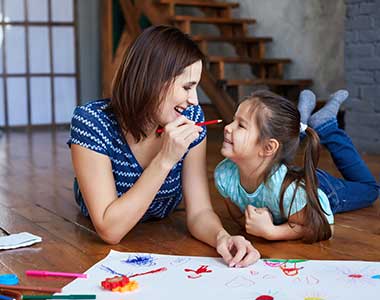Empowering Our Children Against Bullying

Each day, 8-year-old Yazen asked his mom for more and more lunch money. Yet he seemed skinnier than ever and came home from school hungry. It turned out that Yazen was handing his lunch money to a fifth-grader, who was threatening to beat him up if he didn't pay.
Definition
Bullying is a form of aggressive behaviour in which someone intentionally and repeatedly causes another person injury or discomfort. Bullying can take the form of physical contact, words or more subtle actions (like cyberbullying). The bullied individual typically has trouble defending him or herself and does nothing to “cause” the bullying. Bullying causes the victim to suffer mild to severe psychological, social or physical trauma. Bullying is persistent; it happens more than once or has the potential to occur multiple times. Bullying includes a real or perceived imbalance of power between the bully and the victim.
Shapes of bullying
Bullying can be:
- Physical: which includes hitting, pushing and shoving, fighting, tripping, yelling at someone, making rude gestures, taking or breaking another person’s things?
- Emotional: which includes name calling, making fun of someone, laughing at someone, leaving someone out on purpose, starting rumors or telling lies about someone, sending mean messages, trying to make someone feel bad about who they are.
Signs of bullying
- School refusal
- Anxiety
- Loss of appetite
- Sleep disturbance
Why Do Bullies Act That Way?
- Sometimes they pick on kids because they need a victim — someone who seems emotionally or physically weaker, or just acts or appears different in some way — to feel more important, popular, or in control.
- Sometimes bullies know that what they are doing or saying hurts other people. But other bullies may not really know how hurtful their actions can be. Most bullies don't understand or care about the feelings of others.
- Sometimes kids torment others because that's the way they've been treated.
Parental role
If you suspect bullying but your child is reluctant to open up, find opportunities to bring up the issue in a more roundabout way. For instance, you might see a situation on a TV show and use it as a conversation starter by asking, "What do you think of this?" or "What do you think that person should have done?" This might lead to questions like: "Have you ever seen this happen?" or "Have you ever experienced this?" You might want to talk about any experiences you or another family member had at that age. Let your kids know that if they're being bullied or harassed — or see it happening to someone else — it's important to talk to someone about it, whether it's you, another adult (a teacher, school counsellor, or family friend), or a sibling.
Parents can help kids learn how to deal with bullying if it happens. For some parents, it may be tempting to tell a kid to fight back. However, this is not the best idea. It is recommended to teach your kids the following tips:
Stay away from the bully’s radar: As much as you can, avoid the bully. Take a different route when you see your bully.
Use the buddy system: Get a buddy (and be a buddy). Two is better than one if you're trying to avoid being bullied. Make a plan to walk with a friend or two on the way to school or wherever you think you might meet the bully.
Ignore when possible: Ignore the bully. If you can, try your best to ignore the bully's threats. Pretend you don't hear them and walk away quickly to a place of safety. Bullies want a big reaction to their teasing and meanness. Acting as if you don't notice and don't care is like giving no reaction at all, and this just might stop a bully's behaviour.
Stick to an adult: Bullies fear adults, so tell your kids to stay close to a teacher or supervisor, and the bully will leave them alone.
The power of empowerment: Role-playing is a terrific way to build confidence and empower your child to deal with challenges. You can role-play the bully while your child practices different responses until she feels confident handling troublesome situations.
Keep an open line of communication: Check in with your kids every day about how things are going at school. Use a calm, friendly tone and create a nurturing climate so he isn't afraid to tell you if something's wrong. Emphasize that his safety and well-being is important and that he should always talk to an adult about any problems.
Report repeated, severe bullying: If your child is reluctant to report the bullying, go with him to talk to a teacher, guidance counsellor, principal, or school administrator. Learn about the school's policy on bullying, document instances of bullying and keep records, and stay on top of the situation by following up with the school to see what actions are being taken. When necessary, get help from others outside of school, like a family therapist.
Conclusion
A few studies have pointed up some potentially positive outcomes from bullying behaviour. These studies have found that with some individuals, who have been bullied, have been able, through their experiences with bullying, to develop various coping strategies, that taught them how to stand up for themselves. Although schools are doing more to help students, your role as a parent is crucial, and it's never too early to start having a conversation about bullying.
As a keen parent on the well-being of your child, don’t forget that nutrition plays a major role in the psychological well-being of your children. New NIDO Fortified with FortiGrow is the milk nutrition that helps support your child’s grow and develop optimally. It provides an optimized blend of key essential nutrients (Protein, Iron, Zinc, B-Vitamins, Calcium, Vitamin C, Vitamin A and Vitamin D) that are scientifically proven to support your child’s overall growth, cognitive development and mental alertness.
References













 Parenting Articles
Parenting Articles

